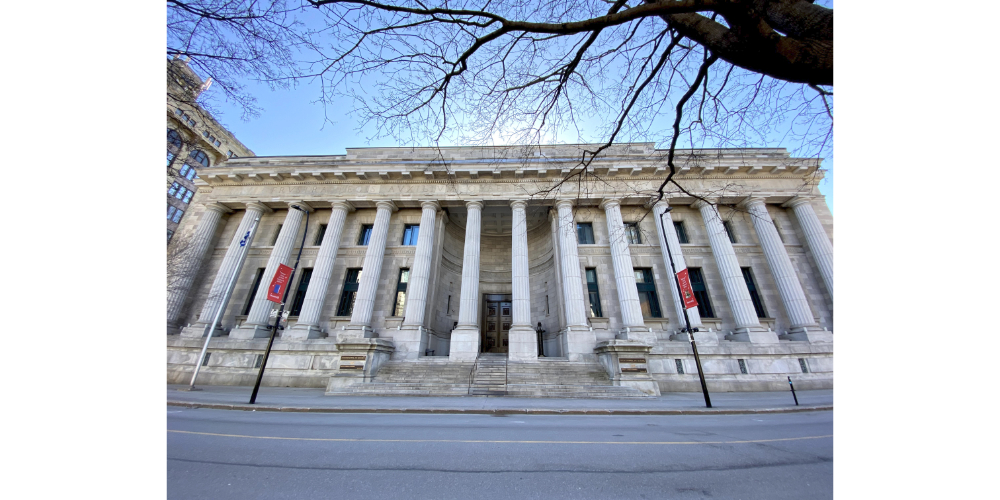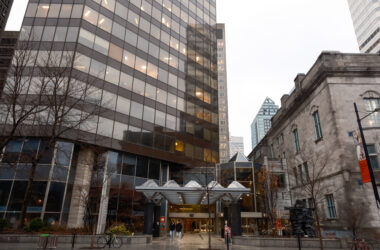The McGill Policy Association (MPA) hosted a Zoom workshop on March 30, featuring discussions on topics related to policy such as the policy-making process, cybersecurity, and municipal government. The webinar was moderated by Teresa Lee, U3 Arts and Science, and included presentations from three master’s candidates from the Max Bell School of Public Policy: Ellen Rowe, a cyber security policy analyst from the Department of National Defense of Canada, Mikayla Zolis, a social innovator working to address urban issues, and Mariel Aramburu, a policy professional with previous experience in intergovernmental and international relations.
Rowe began the discussion by imparting the importance of studying policy-making, noting its use in helping people understand political decision-making processes and how those decisions affect the lives of citizens. Rowe then elaborated on the topic of policy-making with a focus on cybersecurity and phishing, a fraudulent way of accessing personal information.
“We need to have policies in place that can mitigate cyber attacks [and make] sure our workplace […] is up to par,” Rowe said. “The policy side of things […] details what technical experts and people within an organization [are responsible for]. You [have] to make sure that you are aware […] of what phishing emails look like.”
Lee asked Zolis about the policy decisions implicated in municipal government issues. Zolis delineated the closeness of municipalities and citizens, indicating that certain issues, such as taxation, were more local than those at the federal and provincial levels.
“Cities are the closest to the people which means that the politicians and the people that live in cities often have a closer relationship than they may do with the federal level,” Zolis said. “Politicians and civil servants are responding to more localized issues.”
Zolis elaborated on one of the fundamental challenges in municipal governance—property taxes—emphasizing the frustration of citizens when there is a proposed increase.
“One of the major challenges that cities face is that they can only collect their revenue through property taxes,” Zolis said. “People do not like when they get raised [….] That limits what municipalities can do with their large scope and limited resources.”
According to Zolis, issues surrounding property tax increases could be managed quicker than the same issues concerning provinces or territories.
“[Municipalities] can address those issues and we can see […] that they are able to try things out and implement things a lot quicker than other jurisdictions that are higher,” Zolis said.
Aramburu argued that academic research could better shape federal policy decisions and in turn, a country’s political agenda.
“In my role with post-secondary education, sometimes policy comes from your research and what you are looking at,” Aramburu said. “It does not necessarily mean that it [is] on the government agenda, but through your research [….] You [could] have the ability to influence what might be on the political agenda.”
Aramburu explained that policy-making is a broad field that encompasses many ways to address issues at different levels of government.
“One of the things that I am hoping to convey is that policy can be really big […], but it can be a lot smaller. You could [be] making big differences for the citizens you are serving.” Aramburu said.
Aramburu said that policy work on cabinet documents—which she claims constitute a substantial and lengthy task—are not the only way to contribute to the field of policy.
“I think that [cabinet documents] can be a very traditional idea of what policy might look like, but it can also be on the ground, working with relationships and partners and thinking about different ways you can […] improve your province, your city or your country,” Aramburu said.









